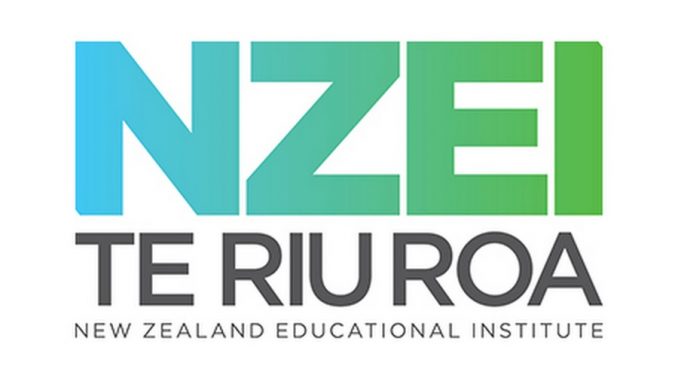

I’ve just reviewed the 2018 NZEI Policy Working Document and I want to know why the NZEI continues to support religious instruction (see section 4.11) when Crown Legal advice to the Ministry of Education has stated that it has no defence against a claim of direct discrimination under the Human Rights Act 1993?
Boards of Trustees have to vote to discriminate against non-Christian families by closing the school to enable religious instruction using section 78 of the Education Act 1964. Section 78 states;
Notwithstanding anything to the contrary in section 77 or in section 65B of the Education Act 1989, if the school’s board for the school district in which the school is situated, after consultation with the principal, so determines, any class or classes at the school, or the school as a whole, may be closed at any time or times of the school day for any period or periods exceeding in the aggregate neither 60 minutes in any week nor 20 hours in any school year, for any class, for the purposes of religious instruction given by voluntary instructors approved by the school’s board and of religious observances conducted in a manner approved by the school’s board or for either of those purposes; and the school buildings may be used for those purposes or for either of them.
When I last spoke with the NZEI about this issue in May 2017, Cathie Penetito told me that their religious instruction policy had not been reviewed since 1985. Clearly, a lot has changed since then. New Zealand has become considerably less religious than it was and the Human Rights Act 1993 was established, legislating the right to freedom of religion.
The NZEI has a long history of protecting teachers from being required to teach religious instruction. As early as 1896, the NZEI expressed fears about a re-introduction of formal religious teaching in schools. However, their protection of teachers from accusations of religious bias has never extended to the protection of children from religious discrimination.
“Despite guarantees given in good faith, there can be no assurance that there would never be discrimination against teachers unwilling to give religious instruction.” – National Education Journal (1961)
In a 2012 article in Stuff about the Churches Education Commission referring to state primary schools as an “under-utilised mission field”, NZEI Past President Ian Leckie completely ignores over 130 years of controversy, saying there was no need to review the rules of religious instruction in state schools as the system was working.
“I dont think anybody intends this as a [religious] conversion; it’s more meeting a social need that’s being asked for by the community.”
This is obviously nonsense. The non-Christian half of NZ parents are not crying out for Bible classes at all. It’s a minority of Christian evangelists who think that we need their religion in order for our children to be “moral”.
Lynda Stuart, who is the current President of the NZEI and long-standing Principal at May Road School in Auckland, stated in a school newsletter on 21st June 2012;
At May Road School we ʻValue ourselves, value our learning and respect all others.ʼ
It is an important part of our school to show respect for all of the beliefs that we have in our community.
I am also reminded of Article 18 of the Universal declaration of Human Rights which states ʻWe all have the right to believe in whatever we like, to have a religion and to change it, if we wish.ʼ
What a great quote! Although it was not directed at religious instruction, it supports the view I have that protection of an individual’s right to personal beliefs is important. Lynda Stuart clearly supports religious freedom, so why does the organisation she heads support religious imposition on secular schools?
NZEI Hypocrisy
The NZEI primarily exists to support teachers but their vision and ethics policies have a significant focus on promoting fairness, equality, good ethics and values within their work. Of course, I’m fully supportive of this. In particular, these points from their code of ethics;
- Taking responsible action on issues of collective concern to make a positive difference
- Developing positive parent/caregiver/whanau partnerships while respecting their lawful authority
- Taking action to safeguard and promote the interests and well-being of learners
- Exercising authority with justice and empathy
- Removing discrimination and preventing the abuse of power
- Operating within a framework of values consistent with New Zealand’s human rights obligations
It sure seems like the NZEI not only suggest, but require their member teachers to stand up for children within their workplace where there is discrimination and abuse of power. Wouldn’t you say that a principal or board of trustees with a religious bias were not only discriminating but abusing their power by imposing their favourite religion on a non-religious school?
Ironically, their own collective agreement specifically states in sections 104-105 that an employee may not be discriminated against due to their religious beliefs under the Human Rights Act 1993. This is in stark contrast with their support of religious instruction where their member teachers are required to stand aside while non-Christian children are being discriminated against due to the imposition of bible classes on their non-religious schools.
Making Excuses
When I was in touch with the NZEI last year, I was given a few different excuses as to why they had done nothing about religious instruction since their policy was set over 30 years ago.
1. The policy hasn’t been reviewed as there has been no push from members
After talking to a number of teachers, I know that this isn’t true. There have been complaints about religious instruction, there has just been no action from the NZEI. Also, shouldn’t the NZEI lead debate? Don’t forget their code of ethics where they stand up for social justice, equity, fairness and the responsibility of “taking action to safeguard and promote the interests and well-being of learners”.
2. It’s best done at a community level
The community is part of the problem. We have one section of the community who votes to impose their religion on a school that is supposed to be welcoming to children from the whole community, not just the kids who go to their church! I think a teacher should protect non-Christian children in their classrooms from the arrogance of their schoolmate’s evangelical Christian parents.
3. There’s other really important stuff to do…
There is always important stuff to do. But what is more important than preventing children from discrimination in their own school?
4. It’s optional
It is farcical to give credence to the claim that religious instruction is “optional” when the school is closed in order to promote religious faith. The cry of “choice” is a joke!
- We choose not to take our children to church.
- We choose to send our children to a non-religious school.
- Why do we now have the choice of religious instruction forced on us in our children’s non-religious state schools?
Are we meant to be grateful that they are giving us a “choice” instead of forcing our kids into Bible classes?
Or should we be grateful that we have a choice forced on us that we have already made outside the school?
NZEI Negligence
The NZEI has done nothing to protect our secular education system. Worse than that, they are actively supporting access for religious groups who seek to undermine it.
The NZEI has been negligent in its responsibility to professional teachers who are expected to stand aside while church volunteers have a shot at converting the kids in their classroom.
Teachers are in a difficult position. They are between the “rock” of their employers (the Board of Trustees that approves religious instruction), and the “hard place” of parents who are either pushing their religious beliefs into the school or resentful but resigned to the insult of Bible classes.
I suggest that the NZEI walks the talk in its code of ethics and stands up for the professional respect that teachers and children deserve. The NZEI should give teachers the backing that they need in order to protect the children in their classrooms from religious discrimination.
Stop supporting religious instruction in non-religious state schools and publicly support the removal of this discriminatory and insulting practice!
What do you think? Comment below and let me know!


Leave a Reply
You must be logged in to post a comment.